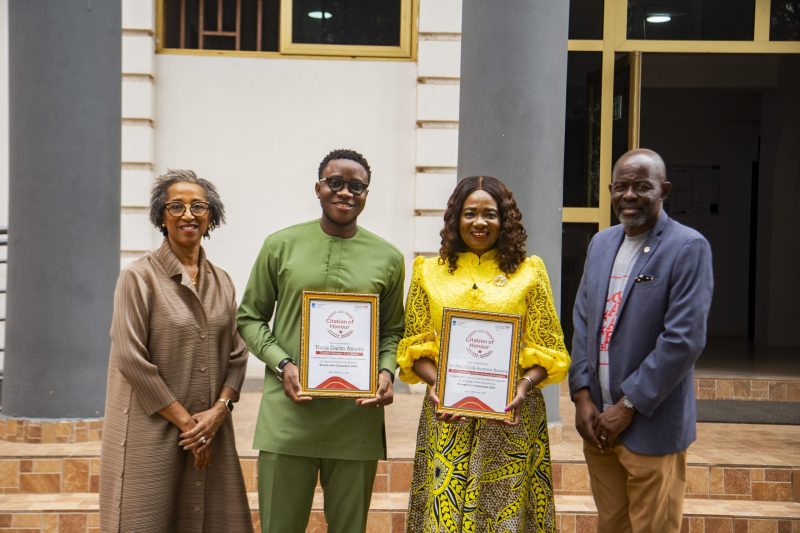The aim of the research seminar series is to bring together academic staff, current foundation, undergraduate, postgraduate students and administrative colleagues of the University in an informal intellectual and social environment. The seminars are held on Wednesdays at 2:00 pm, and each addresses a particular theme.
The format of each seminar is intended to encourage a range of perspectives and engagement with the core theme. Speakers from separate disciplines and academic contexts will describe how the concept or experience of that topic has influenced their own research and research-related agendas. See full calendar for Lent Term 2015/2016.
| DATE | TIME | SPEAKER | TITLE / SUMMARY | |||||||||||
| 10/2/16 |
14:00
|
Gifty Adjei- Mensah |
Financial market development, firm growth and financing choices of firms in Ghana.
Considering the essence of information signalling in financial markets to firms, this study sought to investigate the extent to which financial market and banking sector information influences the choices of finance for firms. Specifically, the study investigates the financing choices of Ghanaian firms as stock markets develop. It also examines the choices when both stock markets and banking systems develop simultaneously. And lastly, the effect of financial development on the growth of firms. The study uses secondary data on a sample of 38 listed firms on the Ghana Stock exchange over the period 1995-2012. The data is analysed using random effects and system Generalised Method of Moments estimation methods. The findings show that, financing choices are not influenced by developments in the financial markets and banking sector, meanwhile, firm growth is significantly influenced by the developments. Signalling and pecking order are therefore shown not to be characteristic of the Ghanaian financial sector although the financial systems are significant for firm growth.
|
|||||||||||
| 17/02/16 |
14:00 |
Dr. Alfred Dickson Dai-Kosi |
Perception of Dual/Multiple Relationships in academic environment
Dual or multiple relationships are almost inevitable part of everyday practice. Lecturers encounter actual or potential conflict between their professional relationships and other social, sexual, religious or business relationships in their dealings with students in particular. This study investigated perceptions of stakeholders about dual relationships between lecturers and students. The study adopted descriptive survey with sample size of 604 comprising 524 students and 80 lecturers using multi stage sampling method. Two sets of questionnaire were developed and used for lecturers and students to collect data. The results of the study indicated that generally respondents perceived that dual relationships negatively affect the objectivity of lecturers. Recommendations and suggestions were proffered on how to minimize the effects of dual relationships in the academia.
|
|||||||||||
| 24/02/16 | 14:00 | Emmanuel Arthur |
Market Orientation: Comparative assessment of Operators and Subscribers in Ghana’s Mobile Telecommunication Industry
Although several studies have been carried out on market orientation in Ghana, none has been conducted on the mobile telecommunications industry despite the pivotal role it is playing in the country’s economy. Even more important is the fact that the great majority of empirical studies rely on organizations to self-assess their levels of market orientation. However as has been argued by researchers (Langerak 2001; Steinman et al. 2000), the evaluation of how market oriented a given manufacturer is should come from external stakeholders, such as its customers and suppliers. This study seeks to examine market orientation from both operators and subscribers and establish a gap if any. The findings indicate a gap when subscribers’ assessment of market orientation is compared with operators’ self-assessment of their market orientation. This confirms research (Johnson and Verayangkura 2000; Steinman et al., 2000) which reported the existence of a market orientation gap where suppliers assessed their own market orientation as being higher than their important customers own assessment of the firm’s market orientation.
|
|||||||||||
| 02/03/16 | 14:00 | Prof. Cynthia Forson |
The paper is based on preliminary findings of a wider comparative study which explored the psychological contract of academics in two case study Higher Education (HE) institutions in the UK and Ghana. The paper takes an intersectional approach examining the effect of age on the career and workplace experiences of men and women academics in Ghana.
African universites were historically designed and developed as male spaces although there have been changes to the African academy and there are now higher numbers of female students and staff than there has ever been (Barnes 2007). Feminist writers on African HE have tended to focus on gender as the overiding factor of inequality. However, in the context of a culture that reveres age maturity, this paper argues that age can be a determining factor in the disadvantage experienced by younger women (and men) in Ghanaian HE workplaces.
The paper draws on the findings of qualitative data collected in a Ghanaian HE institution in 2014. Initial findings indicate that although gender is a significant factor in the disadvantage faced by women academics at the university, at the intersection of age and gender, based on cultural attitudes, participation and informal expectations and obligations, there is a convergence in the perceived experiences of young women and men.
|
|||||||||||
| 09/03/16 | 14:00 | Dr. Kwaku Ohene -Asare |
Multinational Operation, Ownership and Efficiency Differences in the International Oil Industry
Although state involvement in market systems often leads to inefficiency, this influence in the oil industry is not dwindling due to strong growth of some state oil companies. Based on this background, there are concerns about how state firms can continue to stay relevant in the international oil industry by offsetting inefficiencies as a result of state control. This study assesses the effects of multinational operations on the performance of oil firms. This is achieved by comparing productive and scale efficiencies of state and private oil companies as well as state multinationals and private multinationals. A dataset of 50 firms each year from 2001 to 2010 reveals that although multinational operation is important in reducing productive inefficiencies of state firms, it does not mitigate scale inefficiencies of state-owned firms. State firms should therefore make multinational operations a key policy direction since this will provide a transformative agenda towards equally competing with their private counterparts. However, better efforts need to be paid in reducing scale inefficiencies that are pervasive among state-owned oil firms. Providing better controls on firm size will provide better drive towards future efficient production levels.
|
|||||||||||
| 16/03/16 | 14:00 | Ernie Wulff |
Small and medium enterprises (SMEs) have become key economic agents that drive growth in emerging economies. The purpose of this research study is to provide empirical evidence of the factors that constrain SMEs’ access to finance within the context of Ghana.
This study adopted a sample of 500 SMEs in Accra and explored the factors that constrain their access to external finance. The findings show that the level of an SME’s collateral and the age of the business owner can be major constraints to accessing finance in Ghana. The results furthermore reveal that the size of a business, rate of interest charged on loans, age of firm, qualification of owner and number of children can all have a positive impact on an SME’s access to finance. On the other hand, level of collateral security, location of firm, availability of business information, type of business, ethnicity and gender can have a negative impact on access to finance. The chapter also notes that religion has an impact on an SME’s access to external finance.
The findings support the theoretical explanation of the agency, social capital, life cycle and pecking order theories which indicate the impact limited information regarding an enterprise can have on its ability to access finance. This study also recommended that financial institutions should develop specialized products that will help reduce the information asymmetry problems that exist between lenders and borrowers.
|



